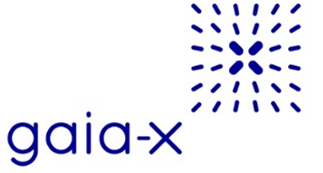Over the last decade, the importance of data has been growing substantially, with no end in sight. With the rise of automation and artificial intelligence, digital information is generated and processed at an ever-increasing rate.
The transition to data-driven approaches in business, science and the public sector was empowered by the wide-spread adoption of cloud computing and new data storage solutions. While these developments brought about a new age of borderless data, significant challenges, such as data sovereignty also arose [1].
The concept of data sovereignty is about enabling stakeholders to maintain control over the handling of their data. In legal terms, it refers to the idea that management of data should be in line with the laws and regulations of the nation where the data was collected [2]. While benefits such as convenient access, rapid provisioning and scalability made cloud computing an essential part of information technology, ensuring the protection of data stored in the cloud is still an ongoing critical issue.
Sovereignty is especially crucial for Europe, since in terms of infrastructure, it is highly dependent on outside actors [3]. Due to the lack of prominent operating system developers, search engines, or public cloud infrastructures of its own, a major part of Europe’s digital infrastructure is provided by non-European corporations. Various stakeholders in Europe have recognized that losing their sovereignty would pose a great risk to innovation and industrial competitiveness within Europe.

Born of German-French collaboration, the Gaia-X project aims to diminish Europe’s economic dependency on major outside corporations. It is a European project based on European values, with the goals of achieving a distributed, federated, secure and open data-driven ecosystem. Involving partners and cloud providers from various European states, the Gaia-X project is supporting the development of a shared European data space. The initiative and its stakeholders are committed to providing a high level of interoperability and interconnectivity between participating infrastructures while ensuring security, openness, transparency, and data sovereignty. Upholding these values is essential for Gaia-X’s mission of supporting digital ecosystems in critical domains such as industry, health, finance, and agriculture.
More and more participants who share the goals of Gaia-X are getting involved in the project, mainly through the establishment of regional connection points across Europe. In the next part of this blog series, you will be able to learn about the creation of the Gaia-X Hungarian National Hub, led by the Institute for Computer Science and Control (SZTAKI).
References
[1] Peterson, Z. N., Gondree, M., & Beverly, R. (2011). A position paper on data sovereignty: The importance of geolocating data in the cloud. In 3rd USENIX Workshop on Hot Topics in Cloud Computing
[2] Hummel, P., Braun, M., Tretter, M., & Dabrock, P. (2021). Data sovereignty: A review. Big Data & Society. https://doi.org/10.1177/2053951720982012.
[3] GAIA-X, GAIA-X: A Pitch Towards Europe - Status Report on User Ecosystems and Requirements, Federal Ministry for Economic Affairs and Energy (BMWi), 2020
Available at https://www.bmwk.de/Redaktion/EN/Publikationen/gaia-x-a-pitch-towards-europe.html
